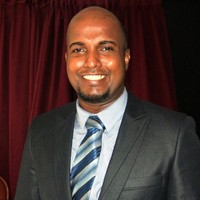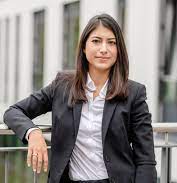International Workshop on Knowledge Graph Summarization
There is a growing interest in generating summaries from the facts contained in a Knowledge Graph. Condensing relevant information into a few statistical data, sentences, paragraphs, or triplets is an emerging problem that remains to be solved as knowledge graphs increase complexity and expand in size and domains. Knowledge Graph Summarization (KGSum) aims at producing concise but informative descriptions of the content of a knowledge graph that help users to efficiently access and distill valuable information from it. Conversational systems, question-answering services or any other method leveraging the narrative content around the entities in a knowledge graph will benefit from these techniques.
This online workshop welcomes a wide range of papers, including full research papers, negative results, position papers, datasets, and system demos, that explore a variety of issues and processes related to the creation of summaries from knowledge graphs, such as question-answering, graph-to-text transformations, and entity summarization, among others. Also welcome are papers on resources (methods, tools, benchmarks, libraries, and datasets).
Topics
Researchers from multiple areas such as Semantic Web, Linked Data, Natural Language Processing (NLP), Entity Linking (EL), Knowledge Representation and Reasoning (KRR), and other related fields will find opportunities to present and discuss about emerging research and applications, and to identify new opportunities that address the following topics (but not limited to):
- Methods to summarize KGs
- Research work and initiatives related to verbalizing facts expressed through subject-predicate-object triplets
- Automatic generation of textual summaries as a way to measure the quality of KGs
- Integration between Language Models and KGs
- KGs features related to summaries
- Special features/metadata from KGs to generate coherent multi-sentence summaries
- Extensions to current KGs formalisms to better support summaries
- Benefits of incorporating automatic generation of textual summaries on KGs
- Scope and Impact of KG summaries
- Use cases and applications for KGs summaries
- Generating adaptive summaries from KGs so they suit the needs of the different agents consuming it.
- Importance/role of KGs in the generation of summaries that express complex ideas
- How KGs in conjunction with textual summaries can be used to improve QA systems
Important Dates
July 14 July 21 (23:59 AoE), 2022: Submission of papers
October 23 or 24, 2022: Workshop
The workshop will be co-located with the International Semantic Web Conference (ISWC) to be held as a online event this year. More information on the ISWC webpage.
Submission Guidelines
KGSum will be a half-day day workshop, divided in two sessions, each one followed by a discussion slot around the presented topics and a panel with a mixture of academic and industrial representatives.
The papers can be submitted via EasyChair. All papers must be original and not simultaneously submitted to another journal or conference/workshop. All submissions must be in English (CEURART format) and will be publicly available under CC-by 4.0 license.
- Full research papers (8-12 pages)
- In-Use and Experience papers (8-12 pages)
- Short research papers (4-6 pages)
- System/demo/Position papers (4-6 pages)
The workshop follows a double-blind review process, where the identity of both authors and reviewers are concealed. Submitted papers must be anonymized.
Accepted Papers
2022 KGSum Proceedings available at http://ceur-ws.org/Vol-3257
Concrete Names for Complex Expressions in Ontologies: A Case Study on SNOMED CT, Christian Kindermann, Martin Georg Skjæveland
Summaries of Knowledge Graph Entities: first steps to measure the relevance of symptoms to infer diseases, Miguel Ángel Rodríguez-García, Carlos Badenes-Olmedo and Soto Montalvo Herranz
Narrativizing Knowledge Graphs, Robert Porzel, Mihai Pomarlan, Laura Spillner, John Bateman, Thomas Mildner and Carlo Santagiustina
Towards More Informative List Verbalisations, Lea Krause, Pia Sommerauer and Piek Vossen
Program
Monday 24th October 2022
Organization Committee

Carlos Badenes-Olmedo
Carlos Badenes-Olmedo is a post-doc researcher at the Onto- logical Engineering Group (OEG) of the Universidad Polit ́ecnica de Madrid (UPM), and co-founder of librairy.eu, a technology-based spin-off that facil- itates the exploration of large document corpora. His research on advanced techniques for knowledge extraction from unstructured data combines ma- chine learning, natural language processing and Knowledge Graphs. Carlos was finalist for the Technology Innovation Talent Awards organized by the Madrid City Council in 2021 and awarded one of the ActuaUPM Prizes for Technological Innovation in 2020.

Jose Luis Redondo-Garcia
Jose Luis Redondo-Garc ́ıa works as an applied scientist in the Alexa Natural Language Understanding team, focusing on making Alexa smarter and available in an ever-growing number of languages. He investi- gates the impact of incorporating sophisticated data selection methods and neural-based models into voice-enabled interactions. His evolving research interests include Natural Language Processing, Knowledge Representation, and Semantic Web. His work on automatically collecting and ranking con- textual entities in international news obtained the Best Paper Award at the international conference KCAP 2015. Jose Luis has worked as a Postdoc with the Ontology Engineering Group at the Artificial Intelligent Faculty, Universidad Politecnica de Madrid. From 2012 to 2016 he pursued his PhD with the Doctoral School Telecom Paristech, in France.

Nandana Mihindukulasooriya
Nandana is a research scientist at IBM Research, Ireland. His research is focused on Knowledge Representation, Knowledge Graphs, Nat- ural Language Processing, and Knowledge Base Question Answering, and Nuero-Symbolic AI. He has published more than 60 peer-reviewed papers in prestigious journals, conferences, workshops on topics related to Knowledge Graphs and NLP. Nandana has previously organized two ISWC Challenges at ISWC 2020/2021 and other workshops at ESWC and K-CAP.

Maribel Acosta
Maribel Acosta is an Assistant Professor at the Ruhr-University Bochum, Germany, where she is the Head of the Database and Information Systems Group and a member of the Institute for Neural Computation (INI). Her research interests include KG sampling for summaries used during query processing and KG quality (completeness). More recently, she has applied Machine Learning approaches to these research topics. She has co-organiezed several workshops (e.g., CrowdSem@ISWC’13 and LDOW@WWW’19) and acted as Research Track Chair (ESWC’18, SEMANTiCS’19, ESWC’21) and PhD Symposium Chair (ESWC’20 and HCOMP’20).
Programme Committee
- Gaetano Rossiello, IBM Research
- Soto Montalvo, Universidad Rey Juan Carlos
- Emilio Monti, Amazon
- Pasquale Lisena, Eurecom
- Pablo Calleja Ibañez, Universidad Politécnica de Madrid
- Hegler Tissot, Drexel University
- Patricia Martín Chozas, Universidad Politécnica de Madrid
- Boris Villazon-Terrazas, EY wavespace
For contact details please send us an email to: kgsum2022@easychair.org